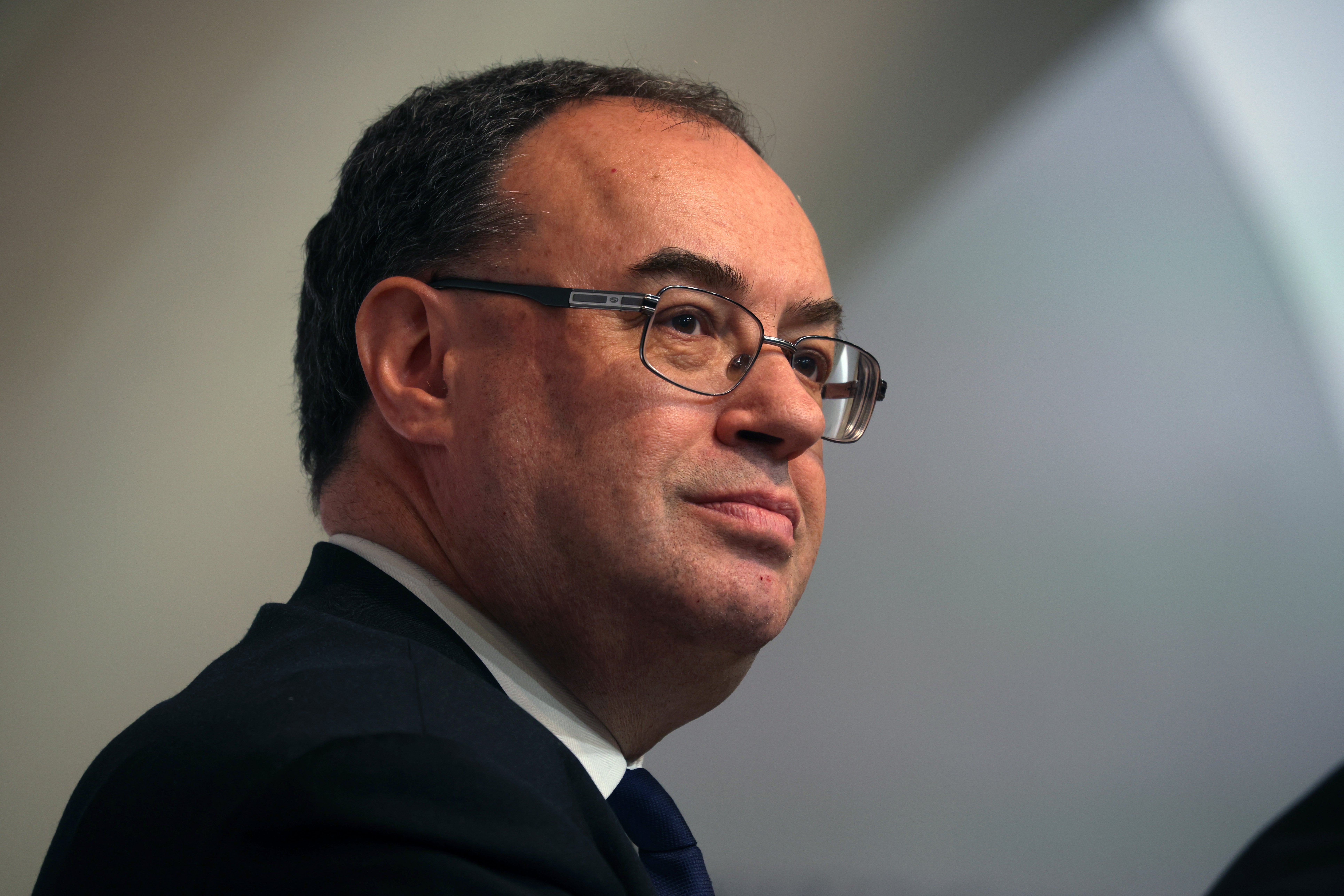Bank boss: Firms should consider ‘hardship’ of others when setting executive pay
Governor Andrew Bailey said companies need to ‘bear in mind’ the struggles that will be felt by many Britons in the current crisis.

Your support helps us to tell the story
From reproductive rights to climate change to Big Tech, The Independent is on the ground when the story is developing. Whether it's investigating the financials of Elon Musk's pro-Trump PAC or producing our latest documentary, 'The A Word', which shines a light on the American women fighting for reproductive rights, we know how important it is to parse out the facts from the messaging.
At such a critical moment in US history, we need reporters on the ground. Your donation allows us to keep sending journalists to speak to both sides of the story.
The Independent is trusted by Americans across the entire political spectrum. And unlike many other quality news outlets, we choose not to lock Americans out of our reporting and analysis with paywalls. We believe quality journalism should be available to everyone, paid for by those who can afford it.
Your support makes all the difference.Bank of England governor Andrew Bailey has called on firms to consider the “hardship” being faced by many on low incomes amid the cost-of-living crisis when setting pay for top bosses.
Mr Bailey said companies need to “bear in mind” the struggles that will be felt by many Britons, with the poorest set to be hit hardest by soaring energy and food bills.
His comments come as the corporate annual general meeting (AGM) season gets into full swing, with investors already showing their dissatisfaction with executive pay.
Barclays saw nearly 11% of shareholders vote against its pay plans on Wednesday in protest at new boss CS Venkatakrishnan’s deal, while fellow banking giant Standard Chartered saw a 31% vote against its remuneration policy.
Mr Bailey said: “In the situation we are in, which is very difficult for low-income households and particularly difficult where inflation is concerned on things like energy and food… it’s important to bear that in mind when you are thinking about these things.”
The thing that concerns me is that in a competitive labour market... it’s those with the least bargaining power and those that are least well off who suffer the most in that process
In a press conference after the Bank’s decision to raise rates to 1% and its forecast for 10.25% inflation, he said: “I recognise the hardship this will cause for many people in the UK.”
The Bank said firms across the UK were reporting that staff are demanding pay rises and bonuses to offset rising prices, which is compounding inflation pressures.
Top bosses are set to particularly come under fire for excessive pay in the current climate.
Mr Bailey cautioned: “The thing that concerns me is that in a competitive labour market… it’s those with the least bargaining power and those that are least well off who suffer the most in that process.
“It’s of great concern and it’s important that we do think about these effects,” he added.
But he stopped short of adding his voice to growing calls for the Government to do more to help families struggling to cope financially.
Mr Bailey landed himself in hot water earlier this year when he asked Britons not to demand big pay rises.
There was further fury when he said he could not remember his £575,000 salary when questioned by MPs over the gaffe.